Fetal Abnormality: A Philosophical Analysis of Moral Status and Action
VerifiedAdded on 2022/11/26
|6
|1333
|278
Essay
AI Summary
This essay provides a comprehensive analysis of the ethical and moral issues surrounding fetal abnormality, based on the provided case study. It begins by examining the Christian view on the nature of human persons, and its compatibility with moral status theories, highlighting the concept of intrinsic human value and dignity. The essay then explores the moral theories employed by the individuals in the case study – Jessica, Marco, Maria, and Dr. Wilson – to determine the moral status of the fetus, providing specific examples from the case to support the identification of these theories. It delves into how each individual's chosen theory influences their recommendations for action, and ultimately concludes with the author's perspective on the most compelling theory, explaining how it would shape a recommended course of action. The essay also explores the virtue ethics theory and its relevance to addressing the situation, emphasizing the importance of providing support and happiness to Jessica. Finally, the essay proposes an action plan for addressing the adverse situation, including empowering the family members on the process of the child's growth and providing proper nutritional knowledge to the parents, along with an assessment of morality theories by the doctors.
1 out of 6
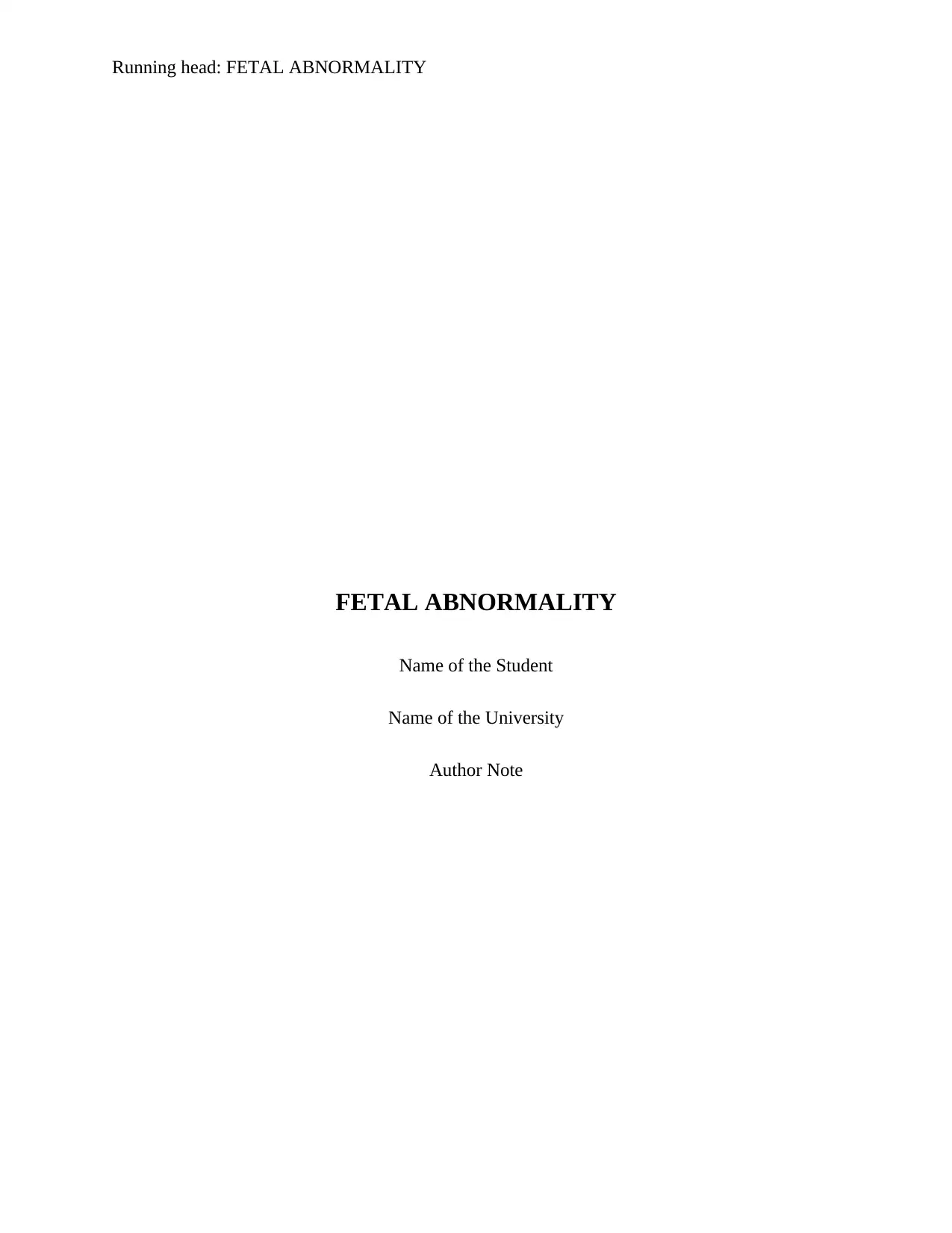
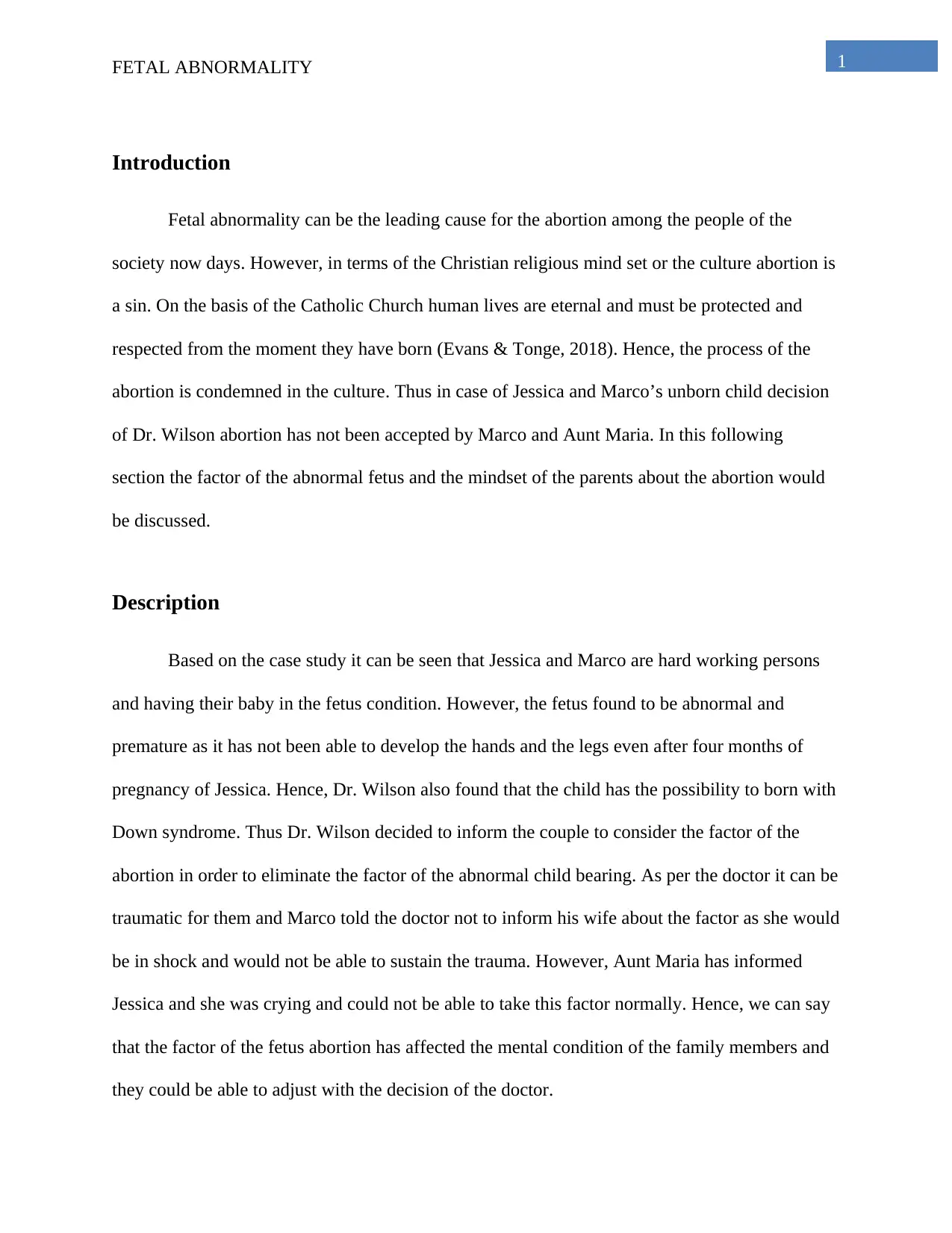
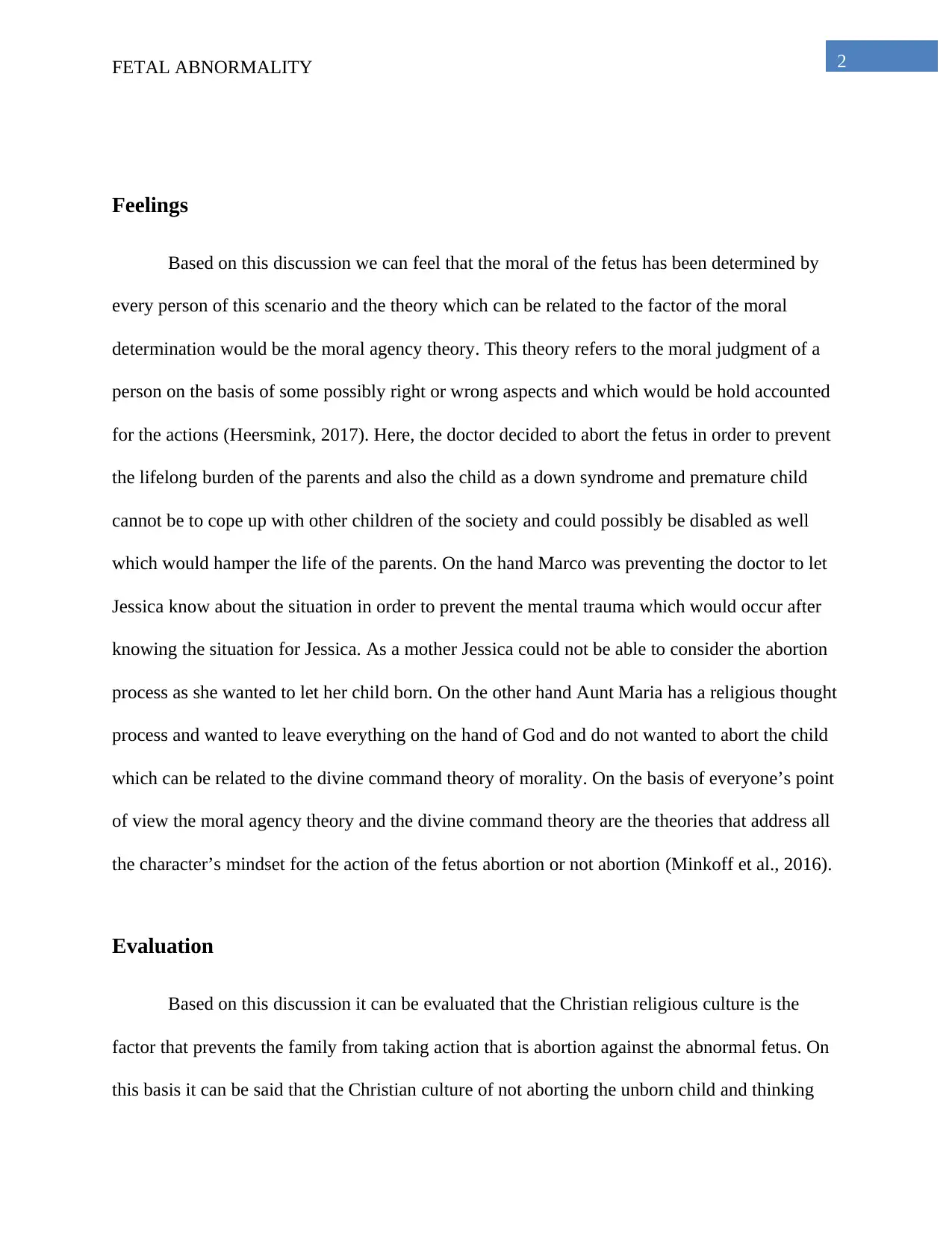

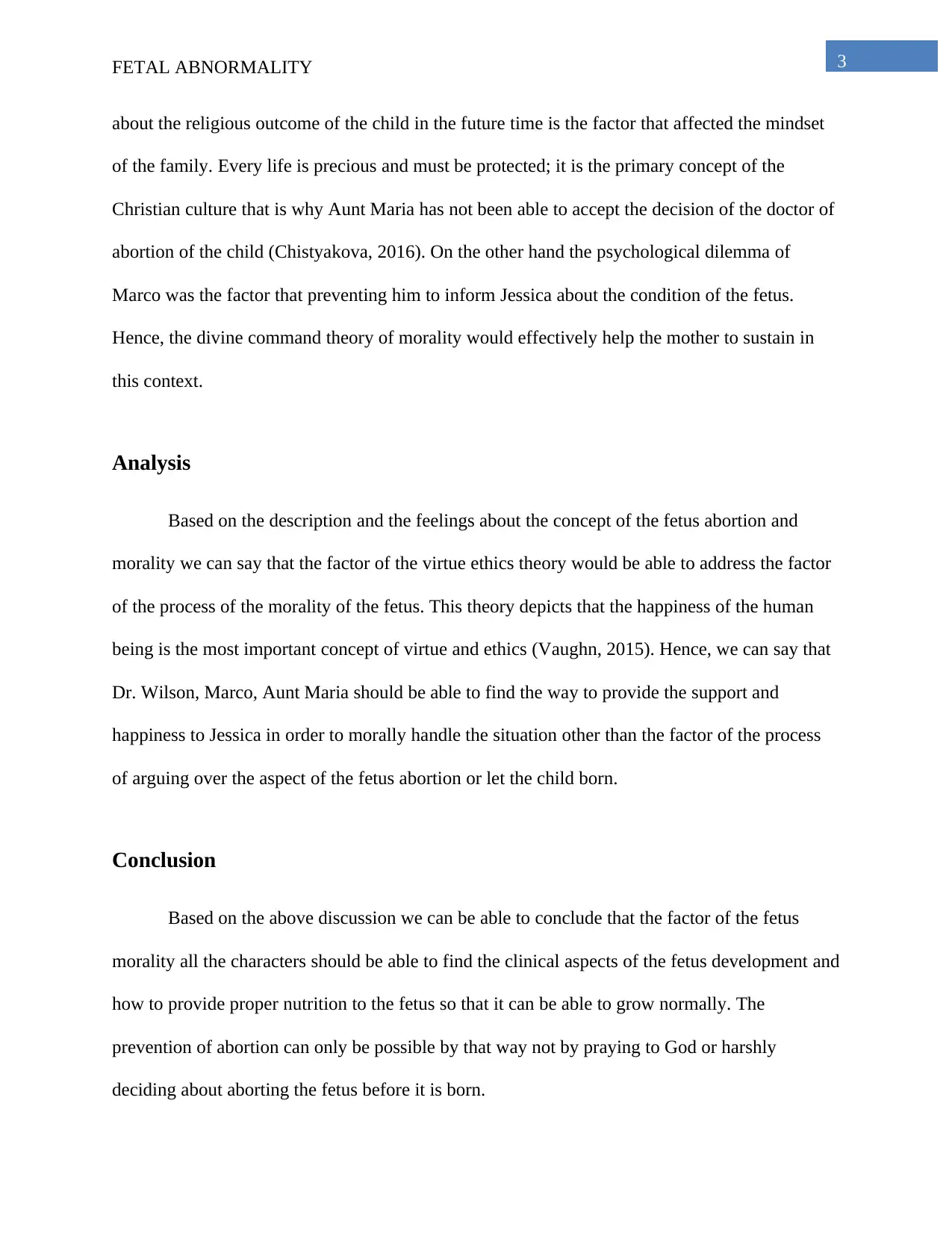
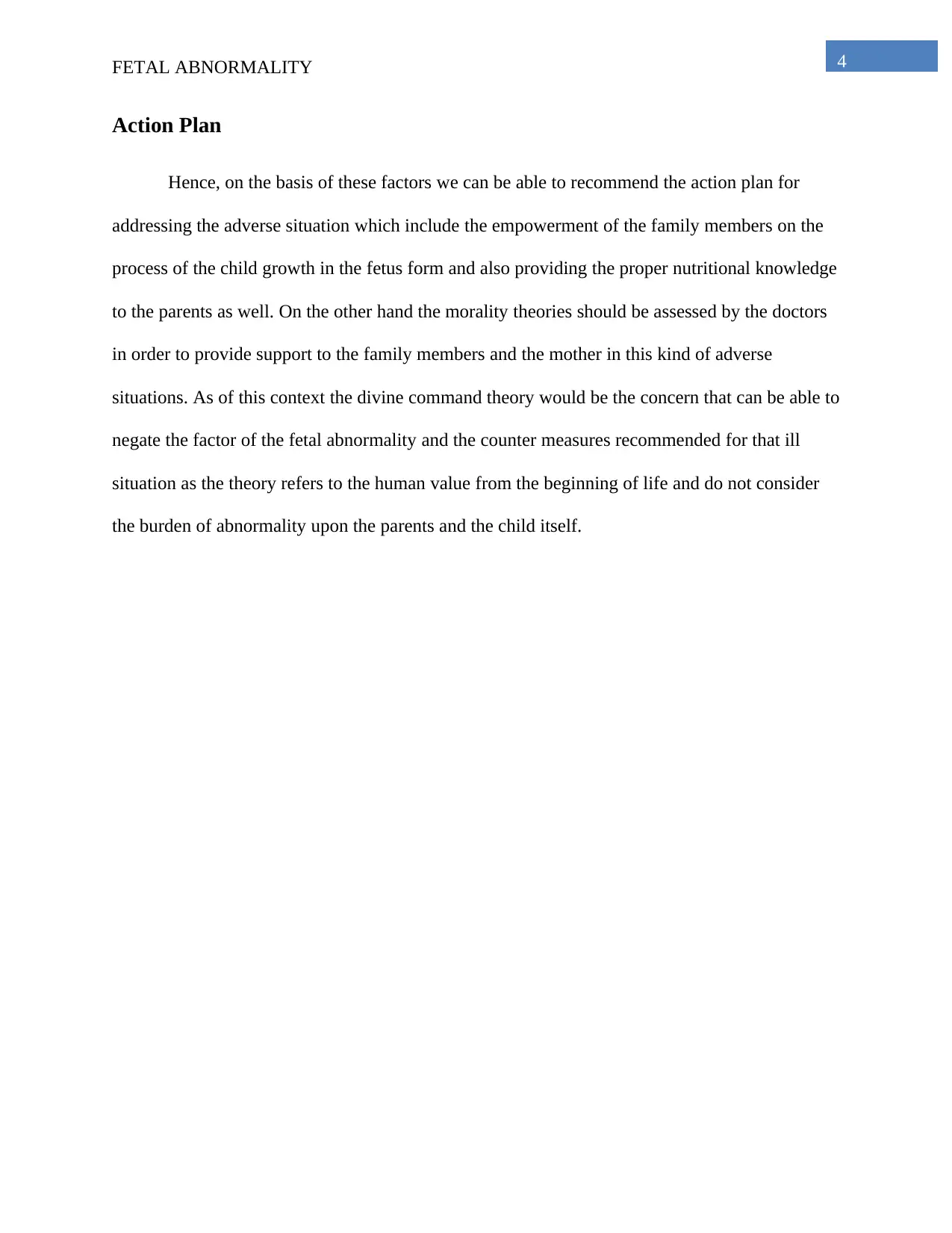
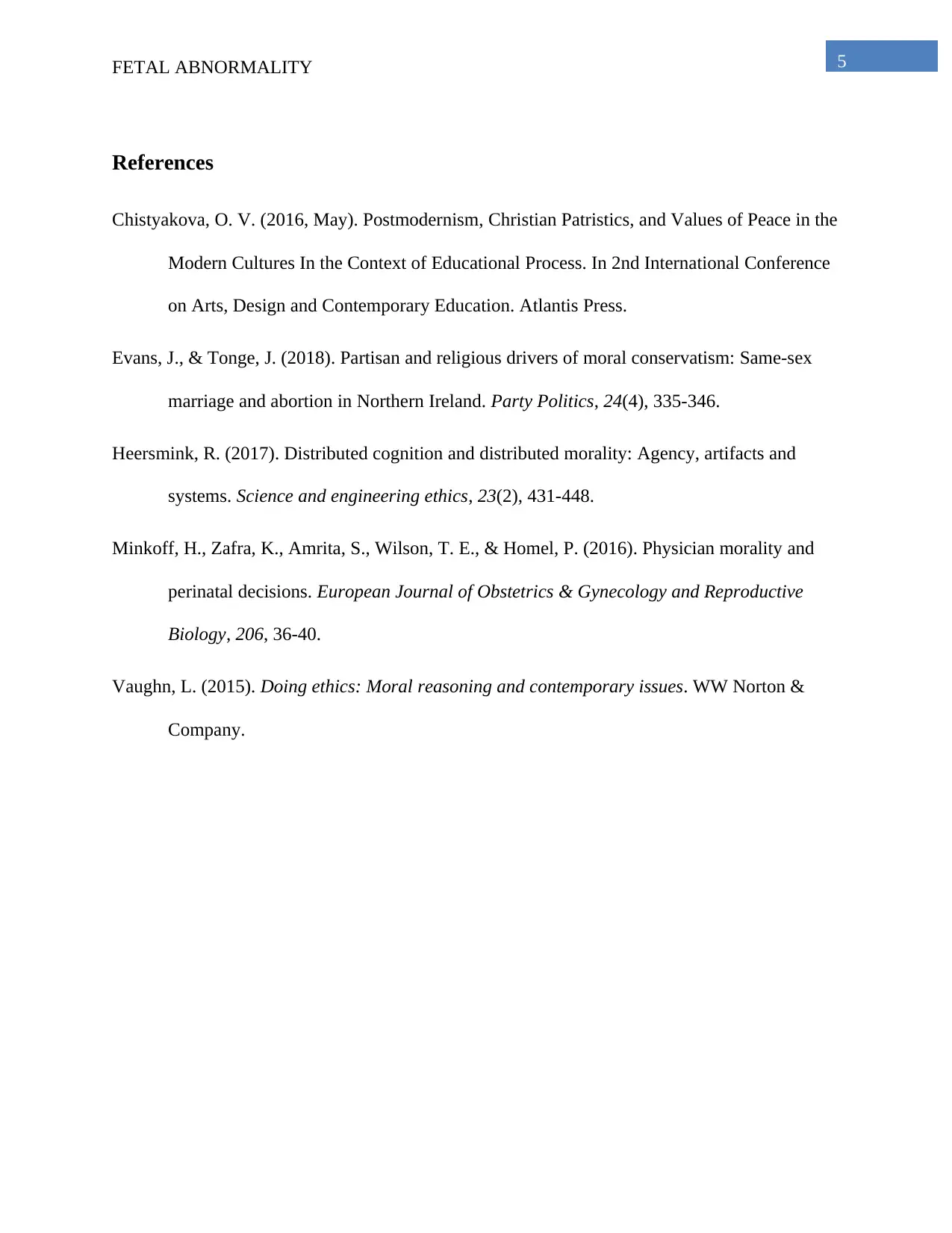






![[object Object]](/_next/static/media/star-bottom.7253800d.svg)